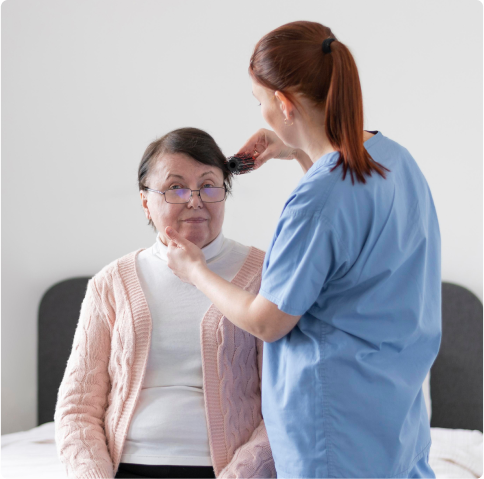Beyond the Basics: Instrumental Activities of Daily Living (IADLs)

You now have a clear understanding of Activities of Daily Living (ADLs)—the fundamental self-care tasks essential for personal well-being, like bathing, dressing, and mobility. But what about the other crucial daily life activities that allow a person to truly live independently and successfully within their community?
These more complex, yet equally vital, tasks are known as Instrumental Activities of Daily Living (IADLs). While ADLs focus on basic physical needs, IADLs require more advanced organizational and cognitive skills. The ability to perform IADLs is often the first indicator that a senior needs help to safely and comfortably age in place.
At A Better Solution Home Care, our caregivers assist with both ADLs and IADLs, offering a complete spectrum of support designed to foster genuine independence and maintain a high quality of life.
What are Instrumental Activities of Daily Living (IADLs)?
IADLs encompass the daily tasks that manage a home and interact with the community. Difficulty with these activities often represents a subtle but significant shift in a senior's functional status. The primary IADLs our caregivers assist with include:
-
Meal Preparation: Planning, shopping for ingredients, and safely preparing nutritious, enjoyable meals. A caregiver can ensure a senior maintains a healthy diet and follows any dietary restrictions.
-
Medication Management: Reminding seniors to take their medications on time, organizing pillboxes, and ensuring prescriptions are refilled. This is critical for managing chronic conditions and preventing dangerous errors.
-
Housekeeping and Laundry: Light cleaning, tidying living areas, making beds, and doing laundry. A clean, organized home is essential for safety, preventing falls, and promoting mental well-being.
-
Financial Management: Assisting with paying bills, managing bank accounts, and organizing important papers. This helps prevent fraud and ensures financial stability.
-
Transportation and Shopping: Planning and providing safe transportation for grocery runs, medical appointments, and social activities. This keeps seniors connected to the outside world and allows them to handle errands.
-
Communication: Helping seniors manage correspondence, including phone calls, mail, and setting up and using technology to stay in touch with family.
The Domino Effect: Why IADL Support Matters
Neglecting IADLs can quickly lead to health complications and safety hazards. For instance, an inability to manage meal preparation can lead to malnutrition and weight loss, which in turn weakens a senior and makes basic ADLs (like transferring) more difficult. Similarly, forgetting medications can destabilize a chronic condition, risking hospitalization.
By supporting IADLs, our professional caregivers not only address immediate needs but also achieve three powerful outcomes:
-
Safety and Stability: We help maintain a safe, functional environment, ensuring that complex tasks like cooking and medication routines are handled reliably.
-
Cognitive Engagement: Unlike basic ADLs, IADLs engage higher-level cognitive skills. By assisting with the task, rather than simply doing it for them, our caregivers encourage seniors to stay mentally active, which can help slow cognitive decline.
-
Community Connection: Transportation and communication support prevents the social isolation and loneliness that severely impacts a senior's mental health and sense of purpose.
A Better Solution for Comprehensive Care
The support with daily life activities offered by A Better Solution Home Care seamlessly integrates assistance for both ADLs and IADLs. Our approach is holistic: we don't just see a need for help with dressing (ADL); we see the larger picture that includes getting the mail, paying a bill, and planning dinner (IADLs).
When you choose our service, you receive a care plan that is continually adapted to your loved one’s changing needs, ensuring they receive the right support at the right time. Our goal is to empower seniors to live their most fulfilling life at home—a life that is safe, healthy, and connected.
If you’ve noticed your loved one struggling with the management or organization required for independent living, it may be time to discuss support for these critical IADLs. How can a customized in-home care plan help your family navigate the transition from full independence to supported independence?
- Art
- Causes
- Crafts
- Dance
- Drinks
- Film
- Fitness
- Food
- Jocuri
- Gardening
- Health
- Home
- Literature
- Music
- Networking
- Alte
- Party
- Religion
- Shopping
- Sports
- Theater
- Wellness


